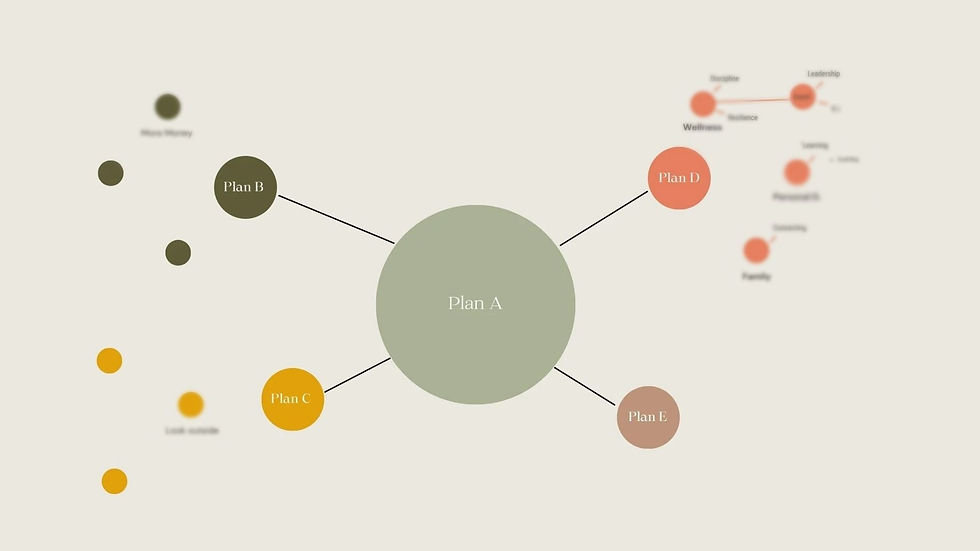It's not in your Head. The Power of the Three Brains
- simonavaglieco
- Jul 22, 2021
- 3 min read
Updated: Aug 12, 2021

How do you make a decision? Imagine you want to buy a house. How will you choose your dream home?
After few years abroad, Frances and Pete had decided to move back. They looked at properties on their budget, and they narrowed their selection to two. Similar in size and price, each of them came with a small compromise. Everything was ready to go, but somehow they were unable to move forward.. What got in the way?
It is easy to make a decision when there is an obvious advantage or disadvantage. When things are on par, we enter the realm of difficult choices, and we tend to pull on the breaks. Frances and Pete had gone through a very logical process. It was the right time to move back for their career. They had savings that would allow them to buy the property they liked. Their brains were telling them their choices were the right ones. They hadn't noticed their heart-brain was struggling, and it was sending the message to the gut-brain not to act. Let me clarify.
A brain is defined as a complex and adaptive neural network with memory, intelligence, and control over our decisions. It turns out we have three brains: the brain in our head (central nervous system), the one in our heart (cardiac nervous system) and the one in our gut (enteric nervous system).
The Head - Brain is all about making sense of the world through cognitive perception and pattern recognition. We use our head to reason and analyse and synthesise information through language, be it verbal, written, or body language.
The Heart-Brain processes emotions (joy, anger, hate, love, compassion, empathy). It holds the key to what is most important to us in life, our priorities and values.
The Gut-Brain is our core identity. We rely on our gut often for quick decision-making; that fight or flight response (safety or risk). It's all about fear but also courage and action.
We tend to believe that if we are looking at things logically, we will always get to the better outcome. Although our Head- Brain does a lot of work (it uses 80% of the energy of the body) in making sense of the world, we cannot decide unless the three brains are aligned.
Let me share Claire's story.
When I met Claire, she was the successful owner of a small business. She recently expanded, but somehow the Covid crisis and an "empty nest" had brought a rethink. In our first session, she said she had decided to move away from her current role to do something else. She had explored different ways out, but she wasn't able to follow through with her decision. It all hinged around one major issue: she wanted to make sure that her business would be in good hands so that the people working for her wouldn't be affected by her decision. Somehow, although her head-brain was crystal clear, it couldn't convince her heart-brain. She couldn't help feel ungrateful and uncaring. Those feelings needed to be explored for her to move to the next phase of the life she wanted.
From an evolutionary perspective, we are willing to disrupt the status quo only if we can benefit from the disruption. We know that it's our heart and gut that guide the action in the most daring circumstances. Think about the expressions we often use "follow your heart "or "it was a gut decision". The brain, in comparison, is too slow to react quickly but very useful in finding creative solutions.
Next time you are faced with a difficult choice, find a quiet moment and a space to reconnect. What does your gut tell you? How does your heart feel? What does your head say? Listen attentively. Our brains have great wisdom.



Comments